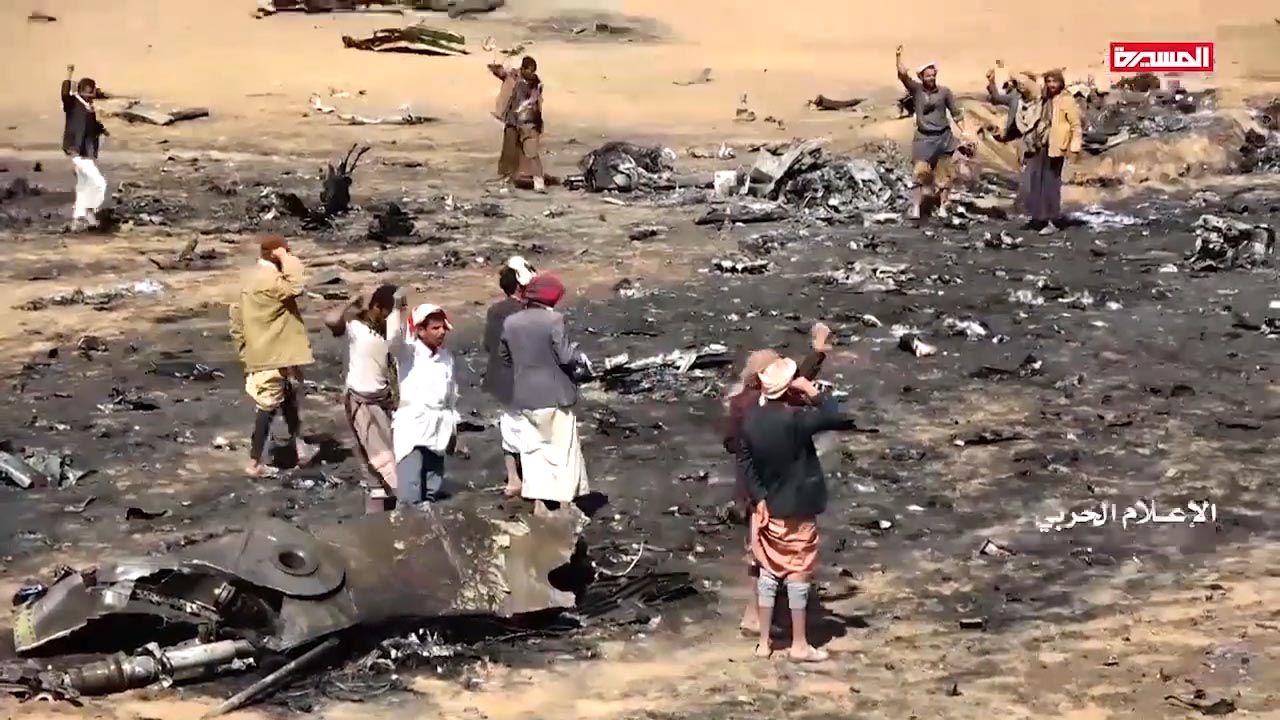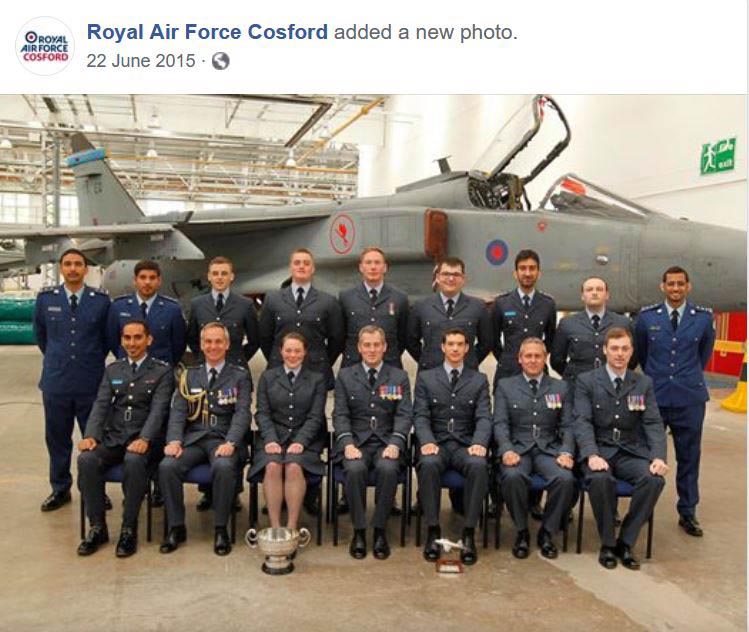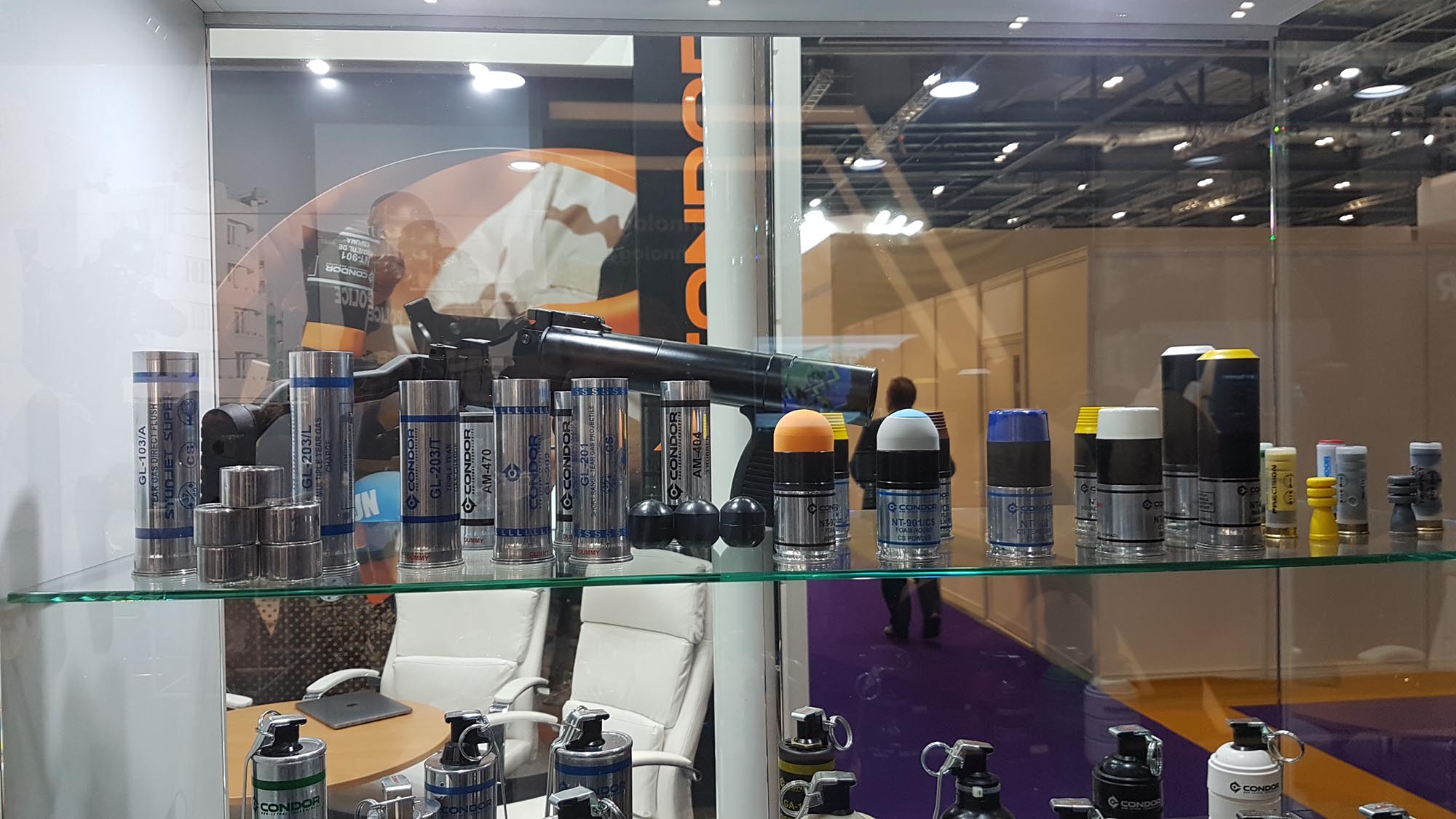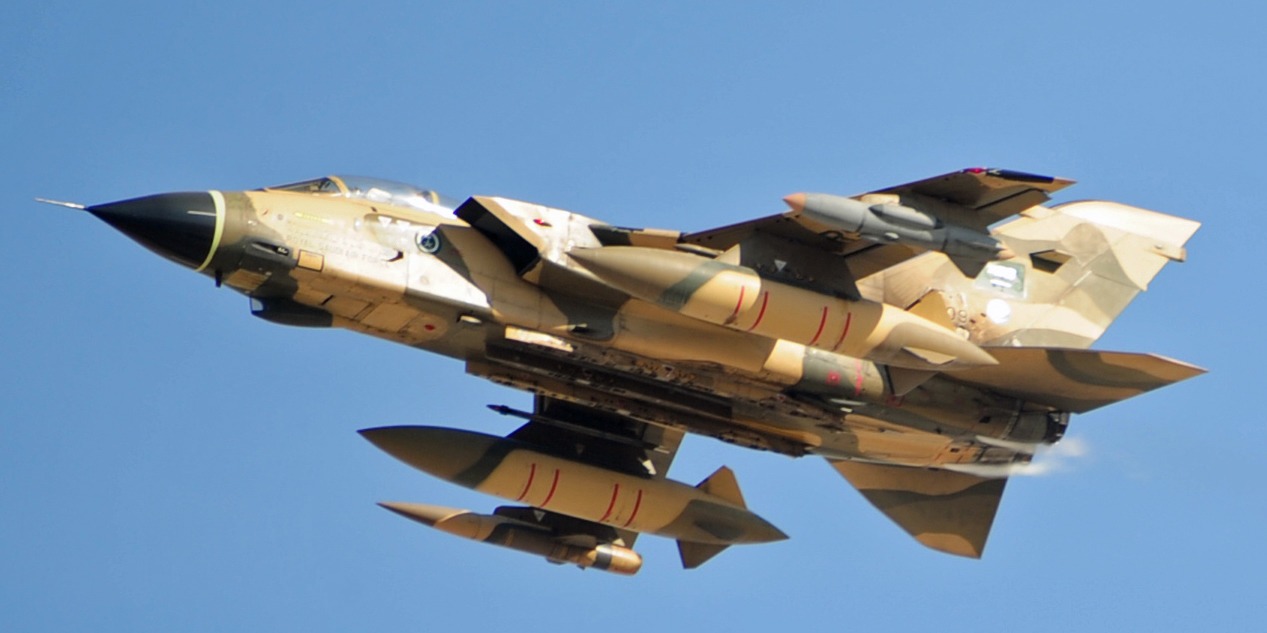- British arms company BAE Systems maintains the Saudi air force’s Tornado fleet which bombs Yemen, the world’s worst humanitarian catastrophe.
- Exports of Tornado spares were allowed to continue because the scheme began before a court ordered an embargo on new licences.
- UK customs made 194 seizures of goods that violated arms export law, a four-year high, but prosecuted no one.
- Britain donated arms to a Somali counter-terrorist unit and took part in an ‘outreach event’ with Israel’s arms industry last year, amid human rights abuses in both countries.
Saudi planes bombing Yemen received 2,323 spare parts from the UK military last year, according to the government’s annual report into strategic export controls, which was published four months later than usual due to the coronavirus.
The long-awaited report shows that supplies to Saudi Arabia’s air force and navy continued despite a court order in June 2019 banning new export licences for use in Yemen.
Tornado spare parts were exempt from the arms embargo because they were covered by licences issued prior to the court ruling. The equipment was diverted from the Royal Air Force (RAF), which stopped flying its own Tornado fleet in March 2019.
Saudi Arabia continues to use Tornados on combat operations in Yemen, having purchased the planes from BAE Systems in the 1980s and 1990s under the notoriously corrupt Al-Yamamah series of arms deals.
The intense fighting requires a constant stream of spare parts. Some experts say the war would stop within weeks without British supplies to the Saudi air force.
Yemen’s Houthi rebels recently shot down a Saudi Tornado, leading British military officials to “verbally discuss the possibility of offering technical assistance” to help Saudi Arabia investigate the crash, although none was ultimately requested.

When asked in Parliament whether the British military had helped to maintain the jet that crashed, Defence Minister James Heappey said, “RAF personnel do not service Royal Saudi Air Force Tornado aircraft.”
In another attempt to downplay the extent of British support for the Saudi air force, the government has told Parliament that none of the Saudi Tornados has returned to the UK for maintenance since the Yemen war began in 2015.
However, Declassified has found from a freedom of information request that the RAF gave Saudi air force technicians a bespoke training course on Tornado maintenance at RAF Cosford in England last year, in addition to the export of thousands of spare parts.
There are also RAF instructors on secondment to BAE Systems who provide training support to Saudi Tornado aircrew.

Sending spare parts to Saudi forces appears to be routine. Official documents show that 575 Tornado spares were sent to Saudi Arabia in 2018, along with 156 missiles and missile launchers. These are thought to include Paveway, Brimstone, Storm Shadow and ALARM missiles.
The conflict in Yemen has caused the world’s worst humanitarian catastrophe. The UN said on Tuesday that 233,000 Yemenis have died so far in the war, while more than 24 million need humanitarian assistance.
Although the UK government refuses to say how many times British-made equipment has caused civilian casualties, it has tracked more than 500 incidents of possible violations of international humanitarian law.
The UK also donates large quantities of aid to Yemen. In December 2019, the Department for International Development gifted three civilian armoured vehicles to the United Nations Verification and Inspection Mission for Yemen, for use in the Red Sea port of Hodeidah.
Export controls?
The UK’s Department for International Trade repeatedly claims that Britain has “one of the most rigorous defence export regimes in the world” which “assesses all export licences in accordance with strict licensing criteria”.
The department’s annual report into export controls shows that in 2019 customs officials made 194 seizures of exports that were in breach of the licensing regime, sanctions or embargoes – a four-year high. Her Majesty’s Revenue and Customs (HMRC) then sent 110 warning letters, but made no prosecutions.
Instead, HMRC opted to issue 12 companies with penalties “ranging from £4,000 to £90,000 for unlicensed exports of military goods, dual-use goods and related activity controlled by The Export Control Order 2008”. The penalties totalled around £408,000.
HMRC has told Declassified that it had a minimum of two officers present during the DSEI arms fair in London last year, which is one of the biggest such trade shows in the world. One company, Condor, had its stand shut down after it was found to be displaying banned electro-shock equipment.
However, HMRC refused to tell Declassified whether it had conducted a criminal investigation into Condor or issued the firm with any penalty, citing privacy exemptions under the Freedom of Information Act.

The Government’s Joint Export Control Unit, which also enforces the licensing regime in addition to HMRC, has just eight inspectors to conduct “compliance visits” at arms factories.
They made 554 site checks in 2019, and found that 43% of exporters were not fully complying with the licensing regime during routine checks. This resulted in 97 warning letters being sent to company directors last year, “where breaches of licence conditions were identified”, up 2% from 2018.
Five exporters surrendered licences which did not cover their goods and two exporters “had a licence suspended due to repeat infractions”.
However, as Declassified has previously revealed, four of the arms factories at the heart of the Yemen war have not been inspected within the last three years, in breach of the government’s own rules.
These include the warplane factories run by BAE Systems at Warton and Samlesbury in Lancashire, northwest England, which manufacture the Tornado.
BAE sends a weekly cargo flight from Warton to a Saudi air force facility which refuels at an RAF base in Cyprus. The flights are believed to carry spare parts, but the Ministry of Defence refuses to reveal the cargo.
Somalia and Israel
Another recipient of military equipment from the UK in 2019 was the Somali police’s Goodir Unit, which was donated £81,000 worth of ammunition and ballistic shields. The elite police unit has been supported by the British Embassy in Mogadishu since at least 2017 under a £1.14-million training contract.
The Goodir Unit comprises a “hard arrest unit”, Rapid Reaction Team and a Counter Terrorism Unit. UK training has aimed to make the Goodir Unit able to conduct “day/night detention operations”.
Somalia is designated as a “human rights priority country” by the Foreign Office and its security forces have been accused of atrocities, such as the massacre of eight health workers in May.
It is not known what role the Goodir Unit played in that incident. Witnesses claim the five masked gunmen wore a mixture of military, police and civilian clothes.
Other recipients of sensitive British equipment last year included the Palestinian Authority (PA), which has been accused of human rights abuses in the West Bank. The UK donated £900,000 worth of commercial IT and communications equipment.
In 2018, Human Rights Watch said the “Fatah-controlled PA has methodically arrested activists and supporters of Hamas or Hamas-aligned groups solely because of their political affiliation or expression”.
British trade officials have also been keen to develop ever closer ties with Israel, taking part in “an outreach event in Israel to update industry and Israeli officials involved in export control licensing of changes to the control lists.”
Israel is also designated a “human rights priority” by the Foreign Office, which has noted: “The first 6 months of 2019 saw continued violations of human rights and international humanitarian law in the context of Israel’s occupation of the Palestinian Territories of the West Bank and Gaza. Settlement advancements and increasing rates of demolition were particularly worrying.”


